Progressive Cosmopolitans are city dwellers. Lavish Mod-cons like to splash the cash. And Anti-Establishment Firebrands? Well they're definitely the most likely to vote for Donald Trump if they had the chance.
Welcome to the Political Persona Project, a comprehensive attempt to examine Australian political attitudes, lifestyles and social values.
More National News Videos
What kind of Australian are you?
We asked thousands of people across Australia hundreds of questions, and used the answers to look for patterns. It turns out we are a divided bunch.
It's a joint project between Fairfax Media, the ANU's Social Research Centre and digital information analysts Kieskompas.
Why did we do it? Because the political world has seemingly turned upside down.
Old labels are fast becoming redundant as new political divides emerge. Such fragmentation seems simplistic when viewed only through the prism of left or right, Liberal or Labor.
Hence our attempt to look at the new fault lines emerging in Australia. By surveying 2600 Australians from all walks of life, and weighting that data for the entire population, we were able to analyse clusters of attitudes that people grouped around.
From there we built our seven political tribes.
It's important to note that very few people will be an exact match for one tribe. There aren't only seven types of Australians! But by representing it this way, and showing you how much you agree with the different clusters, you should get a sense of where you fit in the wider population.

Take the test, and then scroll down for a definition of the seven persona types.
MEET THE 7 TRIBES
ACTIVIST EGALITARIAN
18.2% of the population

Activist Egalitarians are more common in Victoria than Queensland. Photo: Illustration: Matt Davidson
Activist Egalitarians have a strong social conscience and believe governments should intervene to make society more equitable. Strong believers in the redistribution of wealth and public investment, they are socially progressive, support climate action and want to protect Australian manufacturing.
- This group is quite evenly split between city and regional, and across age groups.
- Generally speaking, the less you earn the more likely you are to be an Egal.
- Victorians are twice as likely to be an Active Egal as a Queenslander.
- Nearly 21 per cent of women are Egals, but only 15.5 per cent of men.
Most likely to get on with: Progressive Cosmopolitans, particularly around social issues.
Least likely to get on with: Anti-Establishment Firebrands are not your friends.
PROGRESSIVE COSMOPOLITAN
18.3% of the population

Progressive Cosmopolitans are far more likely to be found in the city than the country. Illustrator: Matt Davidson
Internationalist in outlook, Progressive Cosmopolitans embrace multiculturalism and are politically engaged. They are very motivated by social issues such as climate action and the treatment of asylum seekers. While likely to be thought of as "left-wing", they differ from Activist Egalitarians by being less strongly concerned with the redistribution of wealth. They relish change and don't seek a return to the Australia of years gone by.
- Capital city dwellers are nearly twice as likely to be a Cosmo as those in regional areas.
- Those with a university education are twice as likely to be Cosmos.
- Nearly a third of 18- to 24-year-olds are Cosmos, but that drops to 10 per cent by the 55-64 age bracket.
- People earning more than $90,000 are twice as likely to be a Cosmo as those on less than $52,000.
Most likely to get on with: Activist Egalitarians, just avoid talking about tax/welfare.
Least likely to get on with: You'll likely find Prudent Traditionalists a bit vanilla for your tastes.
AMBITIOUS SAVER
9.9% of the population

Ambitious Savers are looking to get ahead. Illustrator: Matt Davidson
Focused on the future, Ambitious Savers are going places. They watch their spending, value financial security and like life to be organised and predictable. Career-minded strivers, Ambitious Savers are positive about the future and tend to be less concerned with hot-button social or political topics. They generally favour free trade and more likely to support individual freedoms over big government.
- Far more likely to be young. Maybe because older Australians have already achieved their goals?
- More likely to live in cities than in the regions.
- One of the least likely tribes to vote for a minor party. Most likely to vote Coalition.
- Far more prevalent among those earning more than $52,000.
Most likely to get on with: Prudent Traditionalists
Least likely to get on with: Won't get caught at a restaurant splitting a bill with a Lavish Mod-Con.
PRUDENT TRADITIONALIST
29.9% of the population
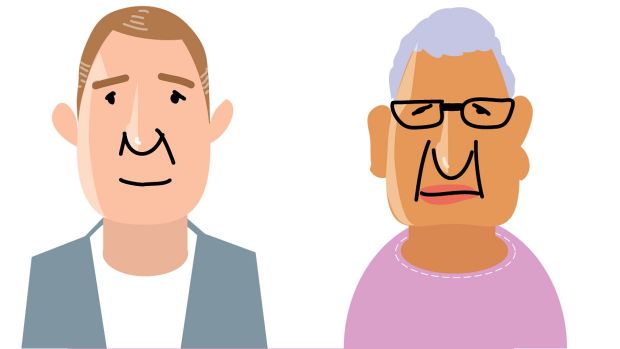
Prudent Traditionalists are the most common of seven personas identified in Australia. Illustrator: Matt Davidson
Prudent Traditionalists share a lot of values with conservatives from days gone by. They believe the world is changing too quickly and would like a return to traditional social values, but aren't likely to fire up about the issues of the day. Unimpressed by luxury and not career-oriented, they are savers rather than spenders, reflecting their cautious approach to life more generally. They believe government should intervene to make people's lives safer and want offshore processing of asylum seekers to continue.
- The biggest tribe by some margin, Trads are spread pretty evenly across the states, but Victorians are least likely to be one.
- Someone living outside a capital city is almost 50 per cent more likely to be a Trad.
- National voters are overwhelmingly Trads. Greens voters are least likely to be Trads. But Trads also are more likely than average to vote for minor parties.
- Nearly 50 per cent of the population aged over 65 are Trads.
Most likely to get on with: Ambitious Savers
Least likely to get on with: Anti-Establishment Firebrands likely scare you somewhat. Progressive Cosmopolitans may seem naive to you.
LAVISH MOD-CON
5.5% of the population
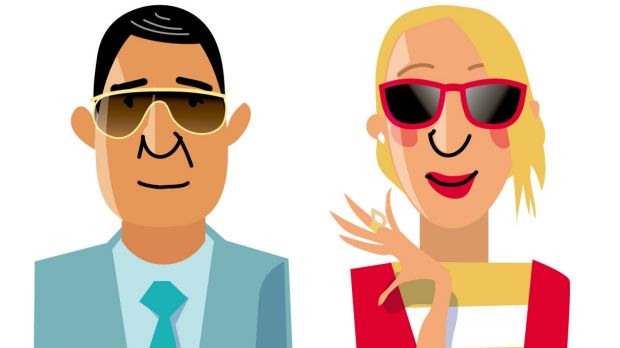
The Lavish Mod-Con, or Moderate Conservative.
Hey big spender. Lavish Mod-Cons (i.e. moderate conservatives) like to splash out on luxury and enjoy looking good. They're proud of their country and generally satisfied with the status quo, so don't tend to be hugely politically engaged. Wary of change, they lean towards conservatism and are less likely to support climate action or a change to offshore processing of asylum seekers. Focused on their careers and the finer things in life, they differ from Prudent Traditionalists by being less in favour of traditional social values and government intervention.
- Spending big generally requires earning big, too. Those on higher incomes are more likely to be Mod-Cons.
- But those with university degrees are less likely to be Mod-Cons.
- Skews male as a tribe.
- A Liberal voter is four times more likely than a Greens voter to be a Mod-Con.
- Queenslanders are the state most likely to be Mod-Con, but it still makes up less than 10 per cent of the population.
Most likely to get on with: You probably get on quite well with Progressive Cosmopolitans, so long as you don't talk in detail about politics.
Least likely to get on with: You might find the Disillusioned Pessimists a bit of a downer.
ANTI-ESTABLISHMENT FIREBRAND
6% of the population

The 'Anti-establishment Firebrand', one of seven types of Australian identified in the Political Persona Project. Illustration: Matt Davidson
Politicians interfere, don't listen and make things worse - and as a result, society has lost its way. So believe the Anti-establishment Firebrands, who are highly resistant of a "nanny state". They're strongly opposed to climate action and free trade and are sceptical of the benefits of immigration, instead favouring traditional values. They don't need life to be predictable or organised, and tend to care less about appearances than other groups.
- Men are twice as likely to be Firebrands than women.
- Degree holders are less likely to be Firebrands compared to those with a trade, diploma or certificate qualification.
- The most likely tribe to vote for a minor party. Very unlikely to vote Green, though.
- Are slightly more prevalent among higher income bands than lower income bands, and almost equally likely to be found in the city as a region.
Most likely to get on with: Hmmm, this is a tough one. Each other.
Least likely to get on with: Politicians. And Activist Egalitarians.
DISILLUSIONED PESSIMIST
12.2% of the population
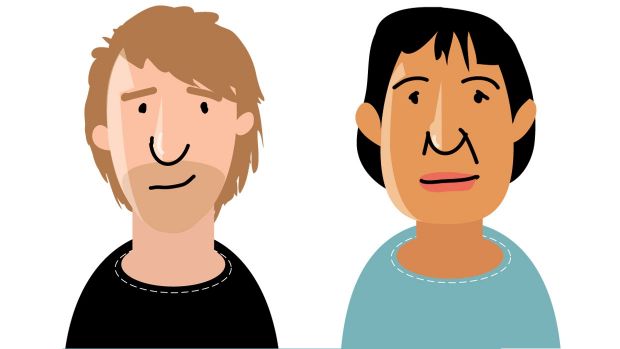
Disillusioned Pessimists are worried about the direction of society. Photo: Matt Davidson
Disillusioned Pessimists despair about the direction of society and our country. They feel pessimistic about the future and let down by the community. Careful with money, they may not have much to spend but they are not campaigning for more wealth redistribution either. They are generally supportive of climate action but wary of opening Australia's doors too wide when it comes to trade and immigration. When it comes to government, they err on the side of personal responsibility over government intervention.
- More prevalent outside capital cities.
- More common among renters than those who own their own home.
- Spread their votes around. Less likely to be Liberal, though. A high percentage vote for minor parties.
- Those earning more than $90,000 are half as likely to be a Disillusioned Pessimist as those earning under $50,000.
Most likely to get on with: Cosmos on the environment, Firebrands on disillusionment.
Least likely to get on with: Mod-Cons probably appear a bit flashy.



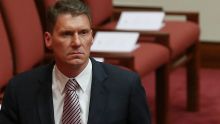

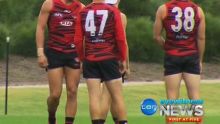











9 comments
New User? Sign up